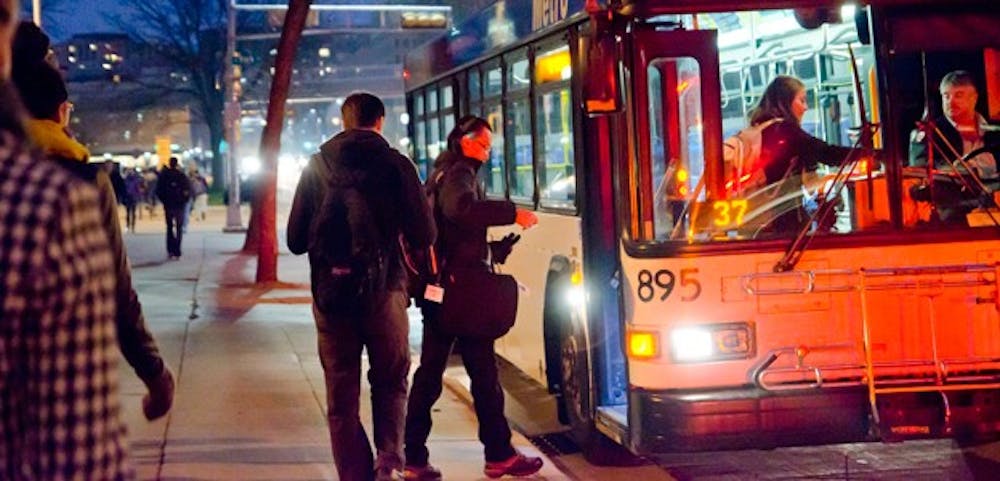Beginning Monday, students using their unlimited-rides bus pass will have to show their WisCards to bus drivers when boarding Metro Transit vehicles that require the swipe of a pass to board.
Madison Metro Transit announced in a press release Wednesday an initiative to enforce the rule already codified on the back of the Associated Students of Madison bus pass students receive, saying fraudulent use of the passes could threaten future pass programs.
Drivers will begin requesting identification from students boarding bus lines, excluding Routes 80, 81, 82 and 84. The release said if a passenger does not have a valid ID, his or her pass will be confiscated.
Bus drivers are also responsible for confiscating passes that have been deactivated, which can happen if the owner of the pass is found posting it for sale on sites such as Craigslist or eBay, which constitutes fraudulent behavior, according to the release.
ASM Press Office Director David Gardner said the bus passes are extremely valuable. In one case, an online posting listed the pass at $300.
“Students who are selling them above what they pay out of their [segregated] fees for them are making a profit off of other students’ segregated fees,” Gardner said. “That’s absolutely unacceptable.”
Students can use their bus pass on any Madison Metro route in lieu of paying a fare per ride. With each boarding swipe, $1.15 is withdrawn from the ASM fund that pays for the passes.
Ald. Scott Resnick, District 8, also said fraudulent use of the bus passes is a noticeable concern.
If a pass is sold to an individual who may not be a student, Resnick said the unlimited rides pass is still being paid for by University of Wisconsin-Madison students.
“Every single time that card is swiped … students are paying for that,” Resnick said.
UW-Madison employees and anyone else who receives an unlimited ride pass from his or her employer will also have to show identification or campus credentials to bus drivers so the driver can verify the correct individual is using the pass, Resnick said.
“This could be an effective method of … verifying and preventing fraud in the future,” he said.






